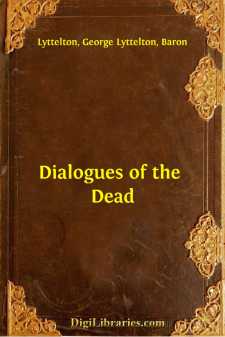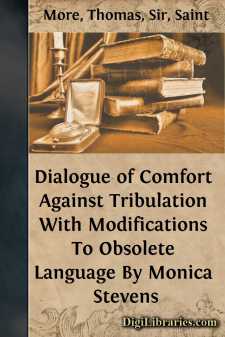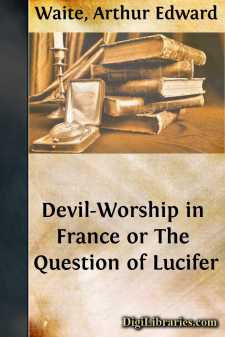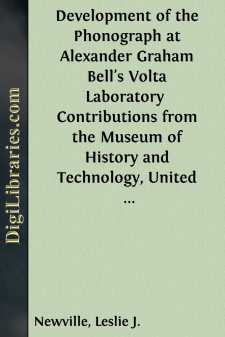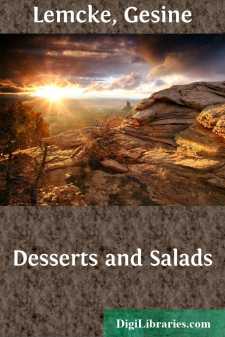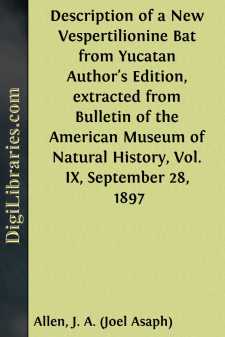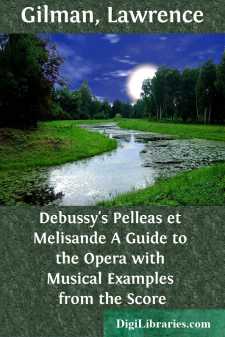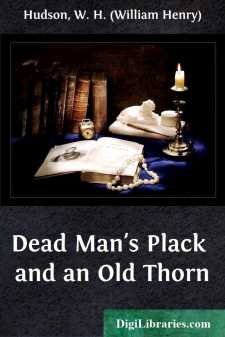Non-Classifiable
- Non-Classifiable 1768
Non-Classifiable Books
Sort by:
December.—They will not allow me to go home, and I must write these things down for fear I forget. It will help to pass the time away. It is very hard to endure this prison life, and know that my sons think me insane when I am not. How unkind Mrs. Mills is today; does she think this sort of treatment is for the good of our health? I begged for milk today, and she can't spare me any; she has not...
more...
INTRODUCTION. George, Lord Lyttelton, was born in 1709, at Hagley, in Worcestershire. He was educated at Eton and at Christchurch, Oxford, entered Parliament, became a Lord of the Treasury and Chancellor of the Exchequer. In 1757 he withdrew from politics, was raised to the peerage, and spent the last eighteen years of his life in lettered ease. In 1760 Lord Lyttelton first published these...
more...
BOOK ONE VINCENT: Who would have thought, O my good uncle, a few years past, that those in this country who would visit their friends lying in disease and sickness would come, as I do now, to seek and fetch comfort of them? Or who would have thought that in giving comfort to them they would use the way that I may well use to you? For albeit that the priests and friars be wont to call upon sick men to...
more...
Exeter'Richmond! When last I was at Exeter,The mayor in courtesy show'd me the castle,And call'd it Rougemont: at which name I started,Because a bard of Ireland told me once,I should not live long after I saw Richmond.' King Richard III., Act IV, Sc. ii. There are not many towns which stir the imagination as much as Exeter. To all West-Countrymen she is a Mother City ... and there...
more...
SATANISM IN THE NINETEENTH CENTURY If a short time ago that ultimate and universal source of reference, the person of average intelligence, had been asked concerning Modern Diabolism, or the Question of Lucifer,—What it is? Who are its disciples? Where is it practised? And why?—he would have replied, possibly with some asperity:—“The question of Lucifer! There is no question of Lucifer. Modern...
more...
The story of Alexander Graham Bell's invention of the telephone has been told and retold. How he became involved in the difficult task of making practical phonograph records, and succeeded (in association with Charles Sumner Tainter and Chichester Bell), is not so well known. But material collected through the years by the U. S. National Museum of the Smithsonian Institution now makes clear how...
more...
by:
Gesine Lemcke
SAUCES. 1. Wine Chaudeau.— Into a lined saucepan put ½ bottle Rhine wine, 4 tablespoonfuls sugar, 1 teaspoonful cornstarch, the peel of ½ lemon and the yolks of 6 eggs; place the saucepan over a medium hot fire and beat the contents with an egg beater until just at boiling point; then instantly remove from the fire, beat a minute longer, pour into a sauce bowl and serve with boiled or baked...
more...
No description available
by:
Lawrence Gilman
I With the production at Paris in the spring of 1902 of Claude Debussy's Pelléas et Mélisande, based on the play of Maeterlinck, the history of music turned a new and surprising page. "It is necessary," declared an acute French critic, M. Jean Marnold, writing shortly after the event, "to go back perhaps to Tristan to find in the opera house an event so important in certain respects...
more...
"The insect tribes of human kind" is a mode of expression we are familiar with in the poets, moralists and other superior persons, or beings, who viewing mankind from their own vast elevation see us all more or less of one size and very, very small. No doubt the comparison dates back to early, probably Pliocene, times, when some one climbed to the summit of a very tall cliff, and looking down...
more...



